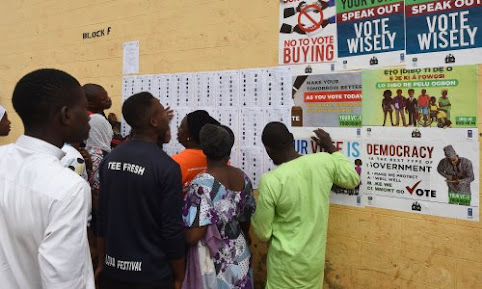By Chiedu Uche Okoye
The rashes of successful military takeovers in some African countries signpost the failure of democracy on the African continent. Before the Caucasoid race brought democracy to Africa, the many different kingdoms in Africa had their pre-colonial types of government.
Then, we had the Dahomey kingdom, Benin kingdom, Oyo Empire, and others. Their respective pre-colonial types of government throve, ensuring and guaranteeing orderly succession of pre-colonial governments in Africa. The evolutionary trends of our pre-colonial governments were stymied by the white people’s introduction of democracy to the African people(s), however.
.png)

















.jpg)
